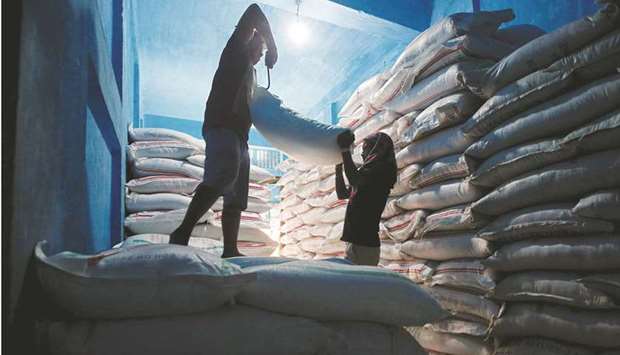Indian merchants have almost entirely stopped signing new export contracts with Iranian buyers for commodities such as rice, sugar and tea, due to caution about Tehran’s dwindling rupee reserves with Indian banks, six industry officials told Reuters.
“Exporters are avoiding dealing with Iran since payments are getting delayed for months,” said a Mumbai-based dealer with a global trading house.
Iran’s rupee reserves in India’s UCO and IDBI Bank, the two lenders authorised to facilitate rupee trade, have depleted significantly and exporters are not sure whether they would be paid on time for new shipments, the dealer said.
Under US sanctions, Tehran is unable to use US dollars to transact oil sales.
Iran previously had a deal to sell oil to India in exchange for rupees, which it used to import critical goods, including agricultural commodities, but New Delhi stopped buying Tehran’s oil in May 2019 after a US sanctions waiver expired.
Tehran continued using its rupees to buy goods from India, but after 22 months of no crude sales, Iran’s rupee reserves have fallen, said the sources, who asked not to be named, citing business privacy.
Iran’s reserves have fallen significantly and “will be over soon probably because trade has stopped,” said a senior official with IDBI Bank.
The Islamic Republic was buying mainly basmati rice, tea, sugar, soymeal and medicines from India.
“Rice exporters are concerned about the current payment mechanism,” said Vijay Setia, a rice exporter and former president of the All India Rice Exporters’ Association (AIREA). “There was too much of delay in payments from last year’s shipments. Exporters received payments six months after shipments,” Setia said.
In the first quarter of 2020 Iran imported nearly 700,000 tonnes of basmati rice from India, but in the same period this year shipments would be “very negligible,” Setia said.
Last year, Iran was the biggest buyer of India’s basmati rice and sugar.
Iran fulfils more than one-third of its sugar and rice demand through imports, traders estimate.
Iran’s trade ministry and Central Bank of Iran declined to comment on the matter.
“We are in talks with Indian government and Indian traders to resolve these payment issues and I believe it will be resolved soon,” said a senior Iranian official, who asked not to be named due to the sensitivity of the matter. “The delay in payments are due to US sanctions on Iran’s financial system that has made such payments very difficult,” he said.
As rupee reserves have depleted and dollar trade is not allowed, sugar exporters are exploring options to conduct trade in euros, Rahil Shaikh, managing director of MEIR Commodities India, said.
Sugar exporters are focusing on other destinations like Indonesia and Sri Lanka, as Iran is unlikely to buy significant quantities this year, said Shaikh.
India’s overall exports to Tehran fell 42% in 2020 from a year ago to $2.2bn, the lowest in over a decade, said an official with India’s Ministry of Commerce and Industry.
The fall is continuing in 2021 and in January this year exports more than halved from a year ago to $100.20mn, the official said.
India’s ministry of commerce and industry did not immediately respond to a request for comment.
Trading houses and exporters were hoping US President Joe Biden could reverse sanctions imposed by his predecessor Donald Trump on the oil-rich country.
“Exports would rebound even if Biden administration provides a few concessions to Iran like allowing oil trade in rupees,” said a Mumbai-based dealer with a global trading firm.

Labourers lift a sack filled with sugar to load it onto a handcart at a wholesale market in Kolkata (file). Indian merchants have almost entirely stopped signing new export contracts with Iranian buyers for commodities such as rice, sugar and tea, due to caution about Tehran’s dwindling rupee reserves with Indian banks, six industry officials told Reuters.
